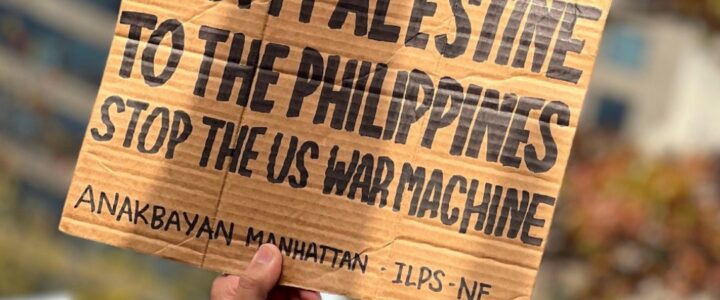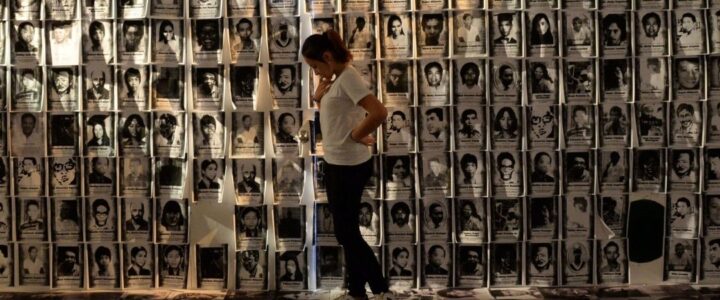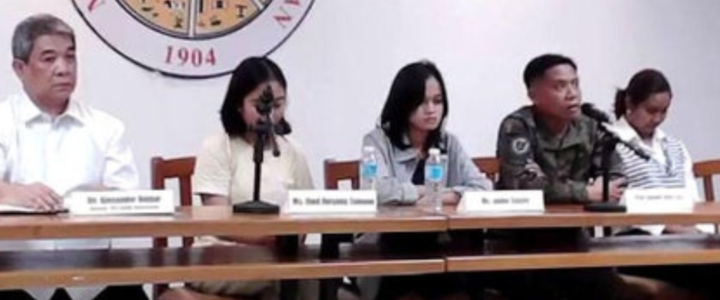Forty year-old research institution Center for Women’s Resources (CWR) reports worsening gender inequality and human rights violations against Filipino women, an alarming lack of commitment of the PH government to the Convention on the Elimination of All Forms of Discrimination against Women (CEDAW), during 9th periodic review for the Philippines this October.
Neoliberal development policies of liberalization, privatization, and deregulation, along with state repression, resulted in the patterns of violations encroaching upon women’s economic, social, cultural, civil, and political rights. Furthermore, the COVID-19 pandemic has exacerbated pre-existing inequalities and discrimination, adding to the difficulties endured by Filipino women.
Economic insecurity, joblessness, and abuse of workers’ rights
According to the May 2023 Labor Force Survey, over 21.14 million Filipino women are “economically insecure”. This includes the unemployed (996,000), those lacking work and income or underemployed (1.899 million), and those outside the labor force (18.248 million).
The number of unemployed women doubled during the pandemic, from 852,000 in 2019 to 1.69 million in 2020. Many women lost their jobs and livelihoods, particularly in sectors that shuttered during lockdowns. By December 2022, an estimated 2.2 million individuals were unemployed, with 1.06 million being women.
Gender wage inequality remains a pressing issue, with women consistently earning less than men. The gender pay gap across occupations ranges from 4% to 44%, according to the Philippine Statistics Authority (PSA). In a case study by CWR in Northern Luzon provinces, women farm workers receive 28.57% lower wages than men, earning $5.45 compared to men’s $7.25. In other rural communities, women earn just $2.72 for a day’s work.
Due to the lack of viable jobs in the country, many Filipino women are forced to go abroad as migrant workers in low-skilled, low-wage, insecure jobs. In 2019, there were 1.23 million overseas Filipino women workers, 24% more than men.
Abuse against migrant workers also persists. In 2020, the Middle East recorded 4,302 cases of OFW abuse. There were also 23,714 contract violations reported, including passport confiscation and the failure to provide domestic workers with the protections outlined in labor codes and labor protection laws.
Cases of violence and abuse remain high
Most violence victims come from the poorest quintile, 16% of women in the lowest wealth quintile have endured physical violence. Poverty deters many women from pursuing legal action due to the high costs, lengthy procedures, and complexity of the judicial process. Two in five women (42%) age 15–49 who have experienced physical or sexual violence have never sought help to end the violence or told anyone about the violence.
Alarmingly, top officials in the country perpetuate misogyny that could encourage violence against women and contribute to the culture of impunity. Filipino women are also subjected to objectification and sexualization in media, advertising, and politics.
Women and girls are forced into prostitution and various forms of body commodification due to poverty. Increased use of technology coupled with restrictions in mobility during the pandemic also gave rise to new methods of commodifying women’s bodies as “traditional” prostitution transitioned online.
Lack of access to judicial and legal processes
Women also continue to suffer from the slow and ineffective justice system. From July 2016 to December 2022, there were 66 women victims of extrajudicial killings, many of whom are women human rights defenders. There are also cases of enforced disappearances and abductions believed to be detained against their will in military camps and facilities.
As of June 2022, there were 162 women political prisoners and 14,073 women deprived of liberty (WDLs). In the Correctional Institution for Women (CIW), 67% of the detained women are jobless and/or housewives/housekeepers or are in the informal sector with meager income and lacking social protection, and mainly commit crimes closely linked to poverty. These women continue to suffer from congestion and poor living conditions in jail facilities.
Violation of women’s right to political participation
Women’s meaningful participation in public life is vital in ensuring that their concerns and perspectives are integrated into decisions and policy-making processes. Concerningly, instances of harassment against women’s representation persist. Gabriela Women’s Party, the sole women’s political party and sectoral representation in the Philippine Congress, faces ongoing disqualification cases filed by the National Task Force to End Local Communist Armed Conflict (NTF-ELCAC) with the Commission on Elections.
Attacks against women human rights defenders and civil society
Women human rights defenders who are at the forefront of the fight for land, jobs, wages, public services, and against extractivist projects continue to face direct attacks from state agents. From July 2016 to December 2022, there were 66 women victims of extrajudicial killings. This includes human rights worker Elisa Badayos, killed in 2017; Zara Alvarez, a human rights advocate, educator, paralegal, and health activist killed in 2020; and Leonila Pesadilla, an active member of the Compostela Farmers’ Association and has been vocal in their opposition to major mining projects in their community.
There are also cases of enforced disappearance such as Loi Magbanua, a labor organizer and women’s and LGBT rights advocate, who was abducted along with a fellow labor organizer, and peasant organizers and human rights defenders Cha Pampoza and Elgene Mungcal who went missing in Moncada, Tarlac.
As of June 2022, there were 162 women political prisoners. This includes human rights workers Alexandrea Pacalda and Glendhyl Malabanan, development worker Rita Espinoza, writer and women’s rights advocate Adora Faye de Vera, community journalist Frenchie Mae Cumpio, and peasant women organizer Amanda Echanis.
The Center for Women’s Resources joins women’s groups and rights defenders in their call to the Philippine government to fulfill its obligation as a signatory to the CEDAW and its local counterpart, the Magna Carta of Women. We challenge the Marcos Jr administration to fulfill the following demands:
1. Respect and fulfill the recommendations of UNHRC member states;
2. Allow Special Procedures and mandate holders to conduct official visits within the Philippines;
3. Undertake a comprehensive review of macroeconomic neoliberal policies; and lastly,
4. Revoke the Anti-Terror Law, Executive Order 70 and disband the National Task Force to End Local Communist Armed Conflict (NTF-ELCAC) to ensure a secure and supportive environment for the crucial work carried out by advocates for women’s rights and human rights defenders. #
CWR’s full submission to the Office of High Commissioner on Human Rights (OHCHR) can be accessed here.





